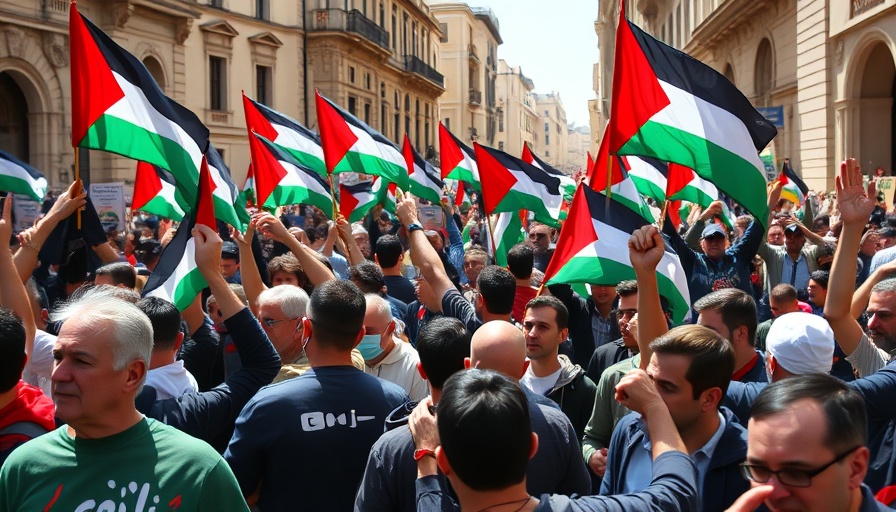
The looming deadline: Saudi Arabia and France's mandate for Palestine
In a bold and controversial move, Saudi Arabia and France are gearing up to implement a Palestinian state without input from Israel, beginning with a June UN-backed conference intended to set a binding timeline. This decision is raising alarm among many who question the ramifications for regional stability.
Understanding the consequences: Is this a step toward peace or discord?
The plan introduces sanctions for non-compliance, a tactic that critiques Israel's security interests, which have long been at the forefront of the nation’s policies. For many Israeli citizens—and advocates for Israel internationally—this development raises critical questions about the future of Israeli-Palestinian relations. Will sidelining Israel help foster an environment for peace, or will it only deepen existing divides?
Global implications: How this affects interfaith dialogue
For Christians worldwide caring about the Middle East, this initiative impacts more than just politics. There are profound theological and humanitarian implications. As proponents of interfaith dialogue strive for peaceful coexistence, moves like this one may complicate efforts to bridge divides. Engaged believers often advocate for peaceful engagement and coexistence, which may now face significant challenges as tensions increase.
What can Christians do? A compassionate response to conflict
This situation offers a unique opportunity for mission-minded individuals to respond with compassion. Social justice advocates can support initiatives that promote dialogue and understanding rather than division. The church can provide a strong voice advocating for peace that stresses mutual recognition, respect, and the acknowledgment of the rich histories of both Palestinians and Israelis.
Inspiration from history: Learning from past conflicts
Historically, political interventions often complicate local disputes instead of resolving them. From the Oslo Accords to various UN resolutions, the patterns are clear: without genuine local commitment to dialogue and recognition, imposed solutions tend to offer temporary relief rather than long-term peace. As followers of Christ reflect on this history, they might find themselves invigorated to pray for, and engage in, more constructive dialogue.
Call to action: How to engage with the unfolding narrative
As citizens and believers, it is essential to keep abreast of developments like these and understand their impacts. Engaging with mission agencies that work in the region, supporting dialogues that enhance understanding, and advocating for policies promoting coexistence can make a difference. Furthermore, we can pray for a miraculous movement towards peace in a situation that all too often spirals into further conflict.
In conclusion, as the situation develops, let's continue to seek understanding and peace. By advocating for respectful dialogue and empathizing with both sides, we can work toward solutions that honor the humanity and dignity of all involved.
 Add Row
Add Row  Add
Add 








 Add Row
Add Row  Add
Add 

Write A Comment